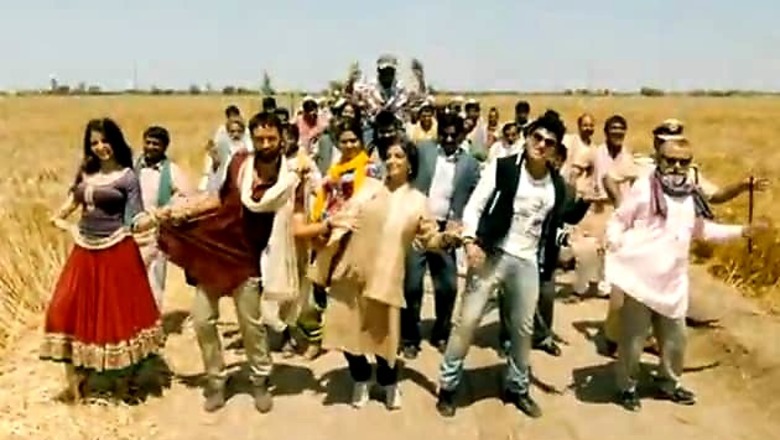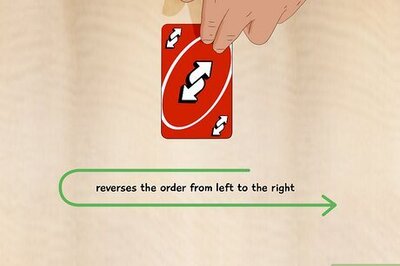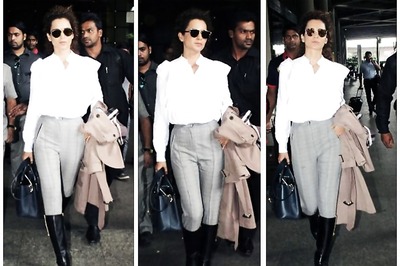
views
New Delhi: Those who have an interest in Bertolt Brecht would know about his 1948 play 'Mr Puntila and his Man Matti'. It is called 'Herr Puntila und sein Knecht Matti' in German and is set in the second decade of the 20th century.
The play has three primary characters Puntila, Matti and Eva. Now, come to the relationship among these three characters. Puntila is a land owner who wants to marry off his daughter Eva to an influential attache. Matti is Puntila's chauffeur and Eva's love interest but Puntila is in a great dilemma about the right match for Eva.
Wait even if you have started reminding 'Matru Ki Bijlee Ka Mandola', there is something more to it. A small synopsis available on the internet describes Puntila as a man who is also dealing with his drinking problem.
The page further says, "In his essay 'Notes on the Folk Play' (written in 1940), Brecht warns that 'naturalistic acting is not enough in this case' and recommends an approach to staging that draws on the Commedia dell'Arte. The central relationship between Mr Puntila and Matti - in which Puntila is warm, friendly and loving when drunk, but cold, cynical and penny-pinching when sober - echoes the relationship between the Tramp and the Millionaire in Charlie Chaplin's City Lights (1931)."
This description matches with the film where Harry Mandola (Pankaj Kapur) provokes the villagers to take a stand against himself in a drunk state but chases them away when he is sober. Hukum Singh Matru (Imran Khan) is his man Friday who also leads a revolution against illogical Special Economic Zones. Anushka Sharma plays Mandola's daughter Bijlee who is supposed to marry a powerful politician's son Baadal (Arya Babbar), but is in love with Matru.
Interestingly, Brecht's play is inspired from a man called Roope Juntula who was said to be engaged with three women, while the film shows Mandola as someone who is flirty but hasn't been married twice. However, Juntula had a reputation for driving his Buick carelessly in the night to procure alcohol. A similar sequence opens 'Matru Ki Bijlee Ka Mandola'.
Pankaj Kapur broods in the same manner as Puntila does in the play, he scolds Imran for letting him drink and taking the advantage of his mood swings.
Eva and Matti stage up a love scene to annoy the attache which finally finishes after Puntila's arrival. In film, Vishal Bhardwaj has spent a considerable amount of time in putting up a fake love scene in the swimming pool (bath hut in the play).
Attache and Arya Babbar have similar characteristics and they both are very easy to influence.
At one point in the play, Puntila says to Eva, "I didn't give you that posh education in Brussels so you could chuck yourself at the chauffeur but to teach you to keep your distance from the servants, or else they will get above themselves and be all over you." Pankaj Kapur gives a long lecture to Anushka in the film about how he arranged for her education in Oxford. (A version of the play is available on internet)
There are some structural similarities between the play and the film. The play ventures into Matti's past life after half of the play gets over. Imran's character and things about his education were revealed in the beginning also but his connection with the leftist revolution establishes only when he meets one of his college friends much later in the narrative.
The questions about the similarities between the play and the film were posed even before the release of 'Matru Ki Bijlee Ka Mandola'. The release of the film confirmed the resemblances in more than one context.
Vishal Bhardwaj's fascination for the world literature continues in 'Matru Ki Bijlee Ka Mandola', but hadn't it been better if he had publicized the film as an adaptation!
####
















Comments
0 comment